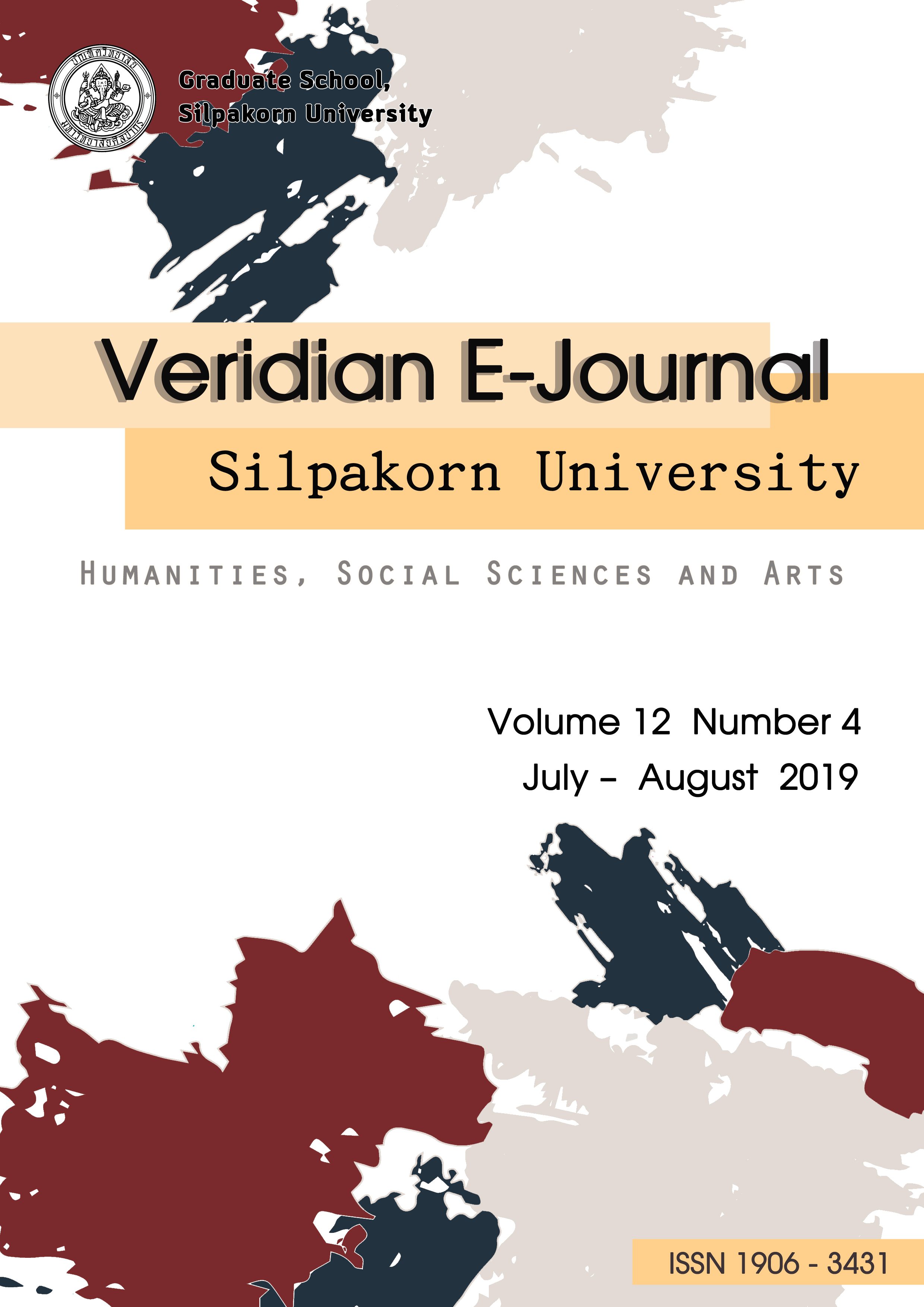การศึกษาสภาพการบริหารจัดการพหุวัฒนธรรมศึกษาสำหรับการศึกษาปฐมวัย ในจังหวัดชายแดนภาคใต้ (The Study of Statuses of Multicultural Education Management for Early Childhood Education in Southern Border Provinces)
Main Article Content
บทคัดย่อ
การวิจัยนี้เป็นวิจัยเชิงคุณภาพ โดยมีวัตถุประสงค์เพื่อศึกษาสภาพการบริหารจัดการพหุวัฒนธรรมศึกษาสำหรับการศึกษาปฐมวัยของสถานศึกษาในจังหวัดชายแดนภาคใต้ มีผู้ให้ข้อมูลสำคัญ จำนวน 40 คน ประกอบด้วยคือ ผู้บริหารโรงเรียน จำนวน 15 คน ครู จำนวน 15 คน ศึกษานิเทศก์ จำนวน 5 คน และผู้ปกครอง จำนวน 5 คน จาก 11 เขตพื้นที่การศึกษาในจังหวัดชายแดนภาคใต้ ผู้ให้ข้อมูลได้มาโดยการเลือกแบบเจาะจง เครื่องมือวิจัยเป็นแบบสัมภาษณ์กึ่งโครงสร้างและแบบสังเกต เก็บข้อมูลโดยการสัมภาษณ์เชิงลึก วิเคราะห์ข้อมูลโดยใช้การสร้างทฤษฎีจากข้อมูล (Grounded theory approach) ผลการวิจัย พบว่า สภาพการบริหารจัดการพหุวัฒนธรรมศึกษาสำหรับการศึกษาปฐมวัยของสถานศึกษาในจังหวัดชายแดนภาคใต้ ประกอบด้วย การส่งเสริมอัตลักษณ์ของสถานศึกษาและวัฒนธรรมท้องถิ่น การส่งเสริมความเท่าเทียม ความเสมอภาคและความยุติธรรมทางการศึกษา การจัดทำหลักสูตรปฐมวัยที่สอดคล้องกับพหุวัฒนธรรม การจัดประสบการณ์การเรียนรู้สำหรับเด็กปฐมวัยที่สอดคล้องกับพหุวัฒนธรรมศึกษา การพัฒนาวิชาชีพของผู้บริหารและครูในสังคมพหุวัฒนธรรม และการสร้างสัมพันธ์กับชุมชน แต่อย่างไรก็ตามถึงแม้ว่าสถานศึกษาจะมีสภาพการบริหารจัดการพหุวัฒนธรรมศึกษาสำหรับการศึกษาปฐมวัยที่สอดคล้องกับบริบทแต่ก็ยังมีบางประเด็นที่ต้องดำเนินการพัฒนาหรือปรับปรุงเพื่อให้มีประสิทธิภาพมากขึ้นโดยเฉพาะการพัฒนาทักษะ ความรู้ของผู้บริหารและครูที่เกี่ยวข้องกับพหุวัฒนธรรมศึกษาสำหรับการศึกษาปฐมวัย รวมถึงการพัฒนาเนื้อหาของหลักสูตรและการจัดประสบการณ์การเรียนรู้ที่สอดคล้องกับบริบทและความแตกต่างทางวัฒนธรรมของผู้เรียน
This qualitative research aims to examine statuses of multicultural education management for early childhood education in Southern border provinces. There were 40 key informants consisting of 15 administrators and 15 teachers from 15 schools in 11 educational service area offices including 5 supervisors and 5 parents. All key informants were recruited by using purposeful selection. The research instruments were semi-structured interview protocols and observation forms. Data collections were conducted by using in-depth interviews and observations. Grounded theory approach was employed for data analysis. The statuses of multicultural educational management for early childhood education in Southern border Thailand were found in different forms including a) promoting identities of schools and local cultures, b) promoting equity and social justice in education, c) developing early childhood education curriculum that aligns with multicultural education perspectives, d) providing learning experiences for early childhood children that fits multicultural education, e) supporting professional development for administrators and teachers and f) building community relations. Despite the statues of multicultural education management for early childhood education are appropriate for contexts of the area, some aspects should be continually developed and improved especially knowledge and skills of administrators and teachers about multicultural education for early childhood education including the curriculum content development that is in accordance with contexts and cultural differences of learners.

